Reality Check: Where do parties stand on Irish border?
- Published
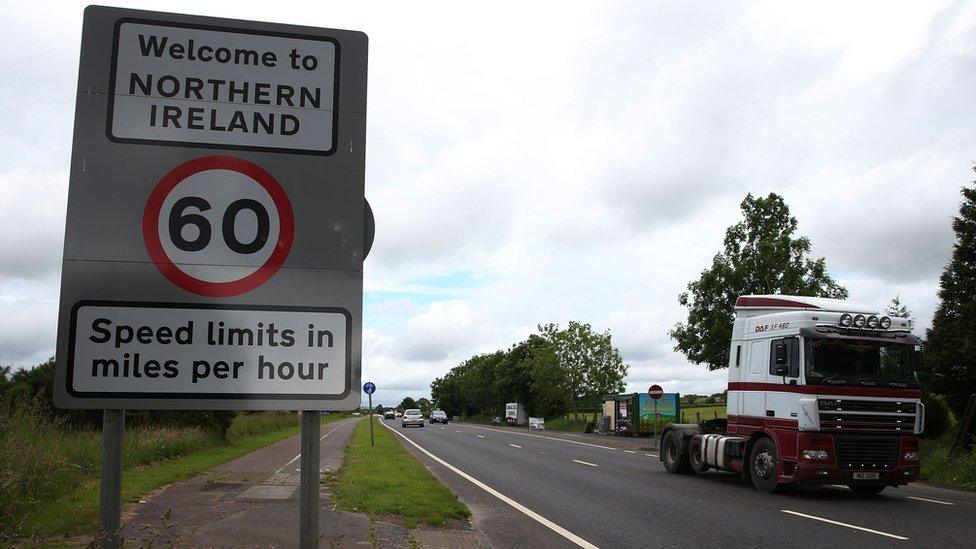
After the result of the UK's snap general election on 8 June has been announced and the dust has settled, the focus for whoever holds the keys to No 10 will turn to the issue of Brexit.
One of the crucial questions following Britain's vote to leave the European Union is what will happen to the land border separating Northern Ireland from the Republic of Ireland.
There is widespread agreement among UK politicians that there should be no return to what they call a hard border and that the Common Travel Area (CTA) should be maintained after Brexit.
These objectives have been echoed by leading European politicians, such as the European Commission President, Jean-Claude Juncker, and chief Brexit negotiator for the EU Michel Barnier.
But as things stand, no party has yet put forward a workable plan for ensuring that both people and goods can continue to cross the border without checkpoints. And we still do not know what Brexit will actually look like.

How many people cross the border daily?
The exact number of individuals that cross between Northern Ireland and the Republic of Ireland every day is difficult to quantify, but the figure is likely to be in the tens of thousands.
The Centre for Cross Border Studies, which has offices in Armagh and Dublin, has estimated that between 23,000 and 30,000, external people cross the border daily for work.
This includes non-Irish and non-UK EU citizens living and working on different sides of the Irish land border.
The figure is believed to be a conservative estimate, with many more making the journey to and from the Republic of Ireland to attend schools and hospital appointments.
Speaking at a House of Lords select committee in 2016, Bernie McCrory, the head of Co-operation and Working Together, external (CAWT), said that the health and social care group's nurses routinely crossed the border several times a day.

More on Brexit and the Irish border
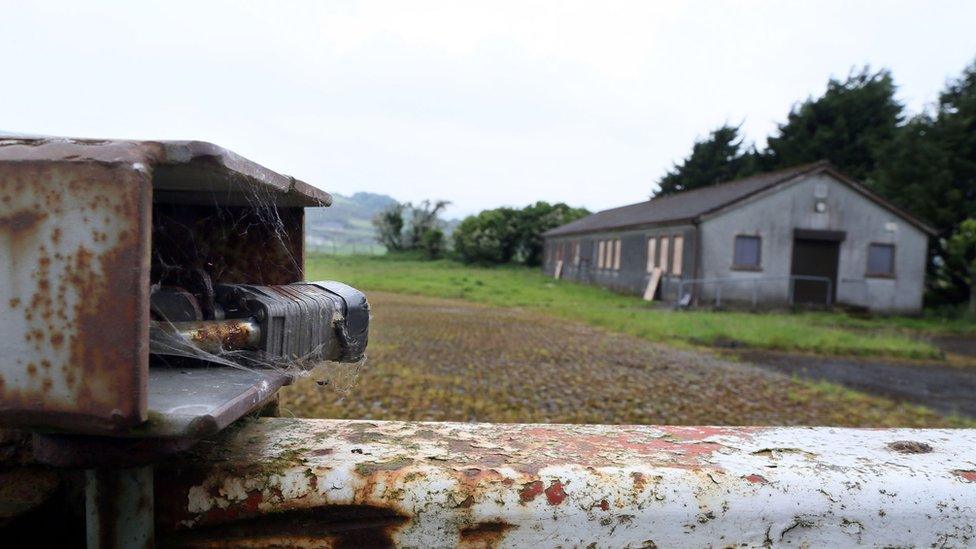
The days of the Troubles are gone, and the border posts between Northern Ireland and the Republic lie rusting and unused.
But now the UK is getting ready to leave the EU.
Hospital patients and schoolchildren and cross-border workers are among those who have to make the daily journey. How do they see the road ahead?

What is NI trade with EU worth?
If the rest of the UK is not included, then Northern Ireland's biggest export market is its nearest neighbour, the Republic of Ireland.
While just under one-third of its total manufactured goods - £2.4bn - were sold across its land border in 2016, of Northern Ireland's £7.7bn export total for the same period, the majority of sales - £4.2bn - were to the EU.
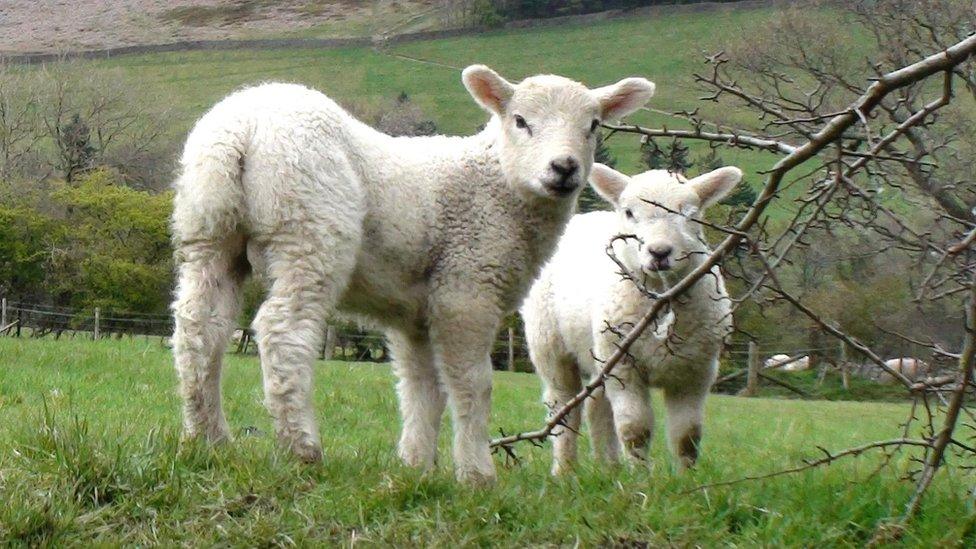
Hundreds of thousands of lambs travel across the border every year
The agri-food sector - trade in food and farm produce - dominates trade in goods between the north and south.
A 2016 UK parliamentary report, external, citing the Irish Farmers' Association, says that 350,000 lambs went from north to south, 500,000 pigs from south to north, and millions of litres of milk travelled in both directions over the course of a year.
Almost 30% of Northern Ireland's milk is processed in the Republic of Ireland, where it is made into butter and cheese or used in infant formula.
For members of the EU, goods and produce such as these can cross borders freely.
But if negotiations between the UK and the EU fail to reach a trade agreement, or if the agreement is less favourable than that enjoyed by member states, it could mean that tariffs - taxes imposed on imported items - could become costly.
Read more: What Brexit means for Northern Ireland
So where do Northern Irish parties stand on Brexit?
In the EU referendum, Northern Ireland voted to remain by a majority of 56% to 44%.
Some - but not all - of the parties supported that view.
Here are some details from each of the main parties' manifestos, stating their aims in terms of Brexit and the land border between Northern Ireland and the Republic of Ireland.

Democratic Unionist Party (DUP)
The DUP is in favour of Northern Ireland leaving the EU but says that Brexit does not mean "leaving Europe".
It adds that it will prioritise maintaining the CTA between the UK and the Republic of Ireland.
Aims:
frictionless border with the Irish Republic; assisting those working or travelling in the other jurisdiction
Northern Ireland established as a hub for trade from the Irish Republic into the broader UK market
comprehensive free trade and customs agreement with the EU
arrangements to facilitate ease of movement of people, goods and services

Social Democratic and Labour Party (SDLP)
The SDLP is a pro-European party that campaigned for Northern Ireland to remain part of the EU.
In its manifesto, it states that Brexit will create an unprecedented situation in which one member of the CTA, the Republic of Ireland, is part of the EU while the other is not.
The SDLP says it will oppose the hardening of borders, in order to protect cross-border workers, farms that straddle both sides and businesses that rely heavily on trade with the south.
Aims:
to maintain the CTA in order to preserve access to the EU, with Northern Ireland treated as part of the European Economic Area
fight for free movement of goods, services and capital
preserve EU human rights legislation
use the Good Friday Agreement, which lists 12 areas of co-operation between the north and south, to negotiate "customised arrangements" with the EU

Sinn Fein
The party says that the "only credible approach" to Brexit is for Northern Ireland to receive special status within the EU that will uphold the democratic vote of citizens, but will also ensure that "the frontier between the EU and Britain will not be on the island of Ireland".
Aims:
continued free movement of people, goods and services between the north and south (and all EU states)
oppose an EU frontier across Ireland; trade tariffs, physical checks or passport controls, it says, are "unacceptable"
continued agricultural, structural and investment funding from the EU
securing designated special status for the north

Alliance Party
The pro-European Alliance Party supported a Remain vote.
It opposes a hard Brexit and supports a second referendum following negotiations, to allow citizens to decide whether any agreement reached is better than EU membership.
The party also argues that Northern Ireland is a special case because its citizens have an automatic right to be Irish citizens and, therefore, to be citizens of the EU.
Legally, Northern Ireland would, post-Brexit, have the capacity to opt back into the EU through joining a united Ireland, it says.
Aims:
participation within the customs union and single market
adherence to the four freedoms of the EU; movement of goods, capital, services and people
rights to EU citizenship for those born in Northern Ireland
a second referendum with an explicit choice: the negotiated deal or membership of the EU

Ulster Unionist Party
The UUP's view on Brexit was that, on balance, it was beneficial for Northern Ireland to remain within the EU.
The party says it has a vision to make Northern Ireland the "UK's Gateway to Europe".
Aims:
lobby for unfettered access to the EU single market on terms no less favourable than currently enjoyed
ensure that people in Northern Ireland have unfettered access to all parts of the island of Ireland
ensure that no hard border between Northern Ireland and the Republic of Ireland is created
no hard border or internal borders within the UK



- Published28 March 2017
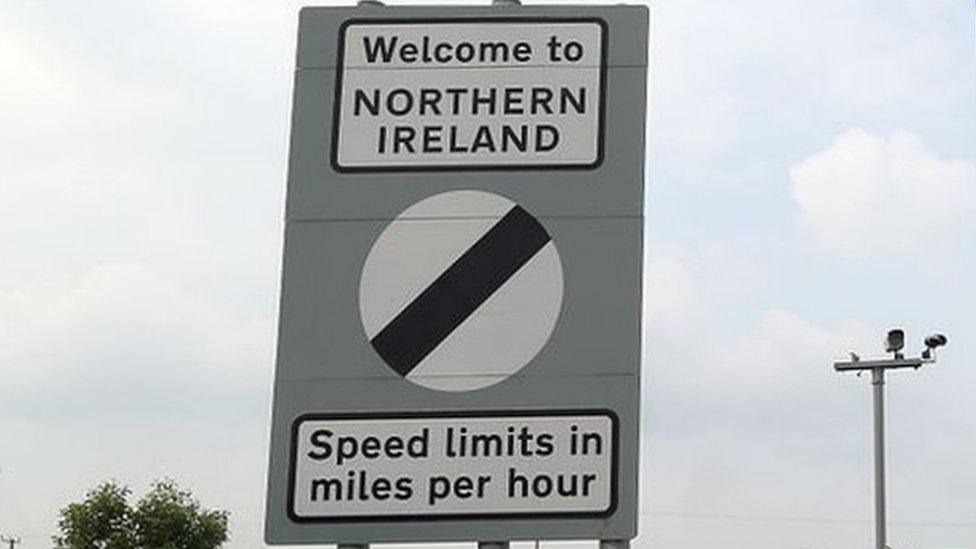
- Published10 May 2017
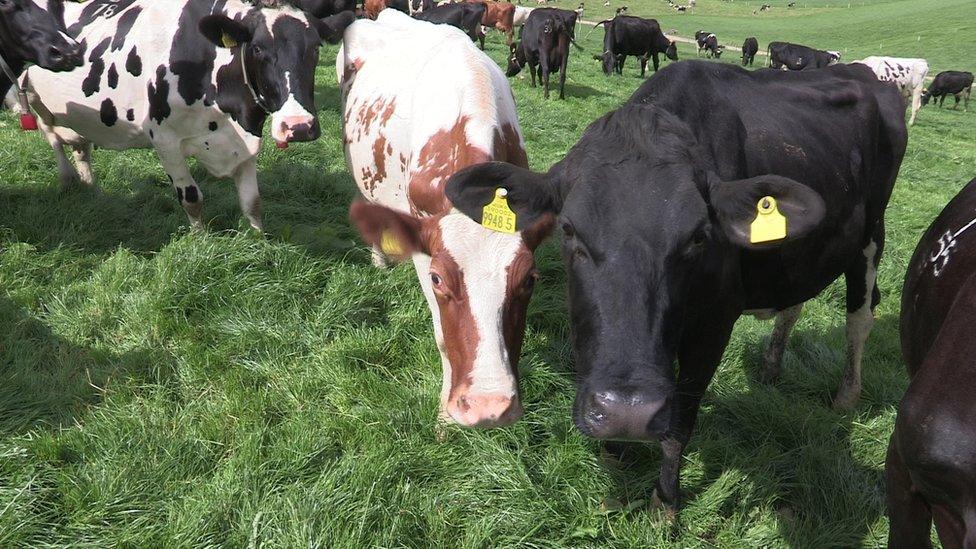
- Published3 May 2017
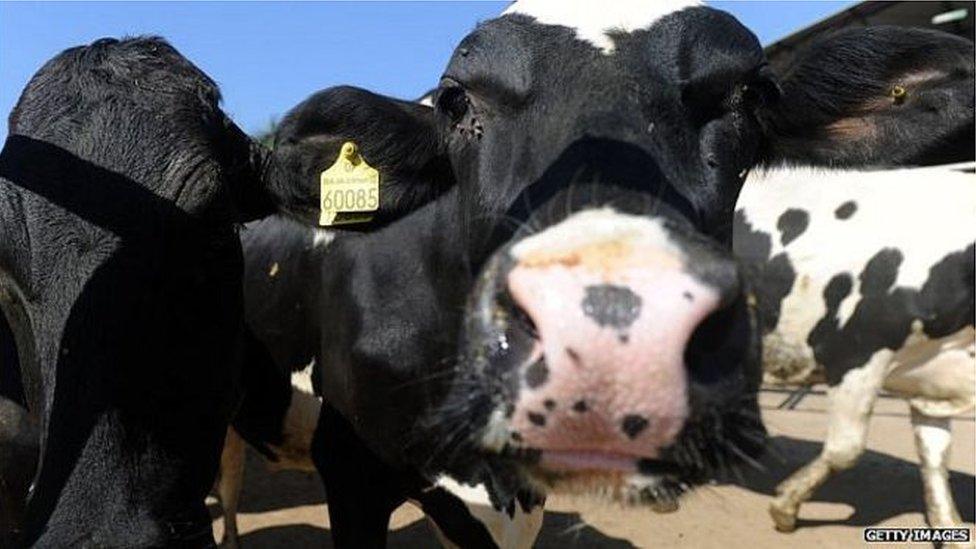
- Published29 March 2017
